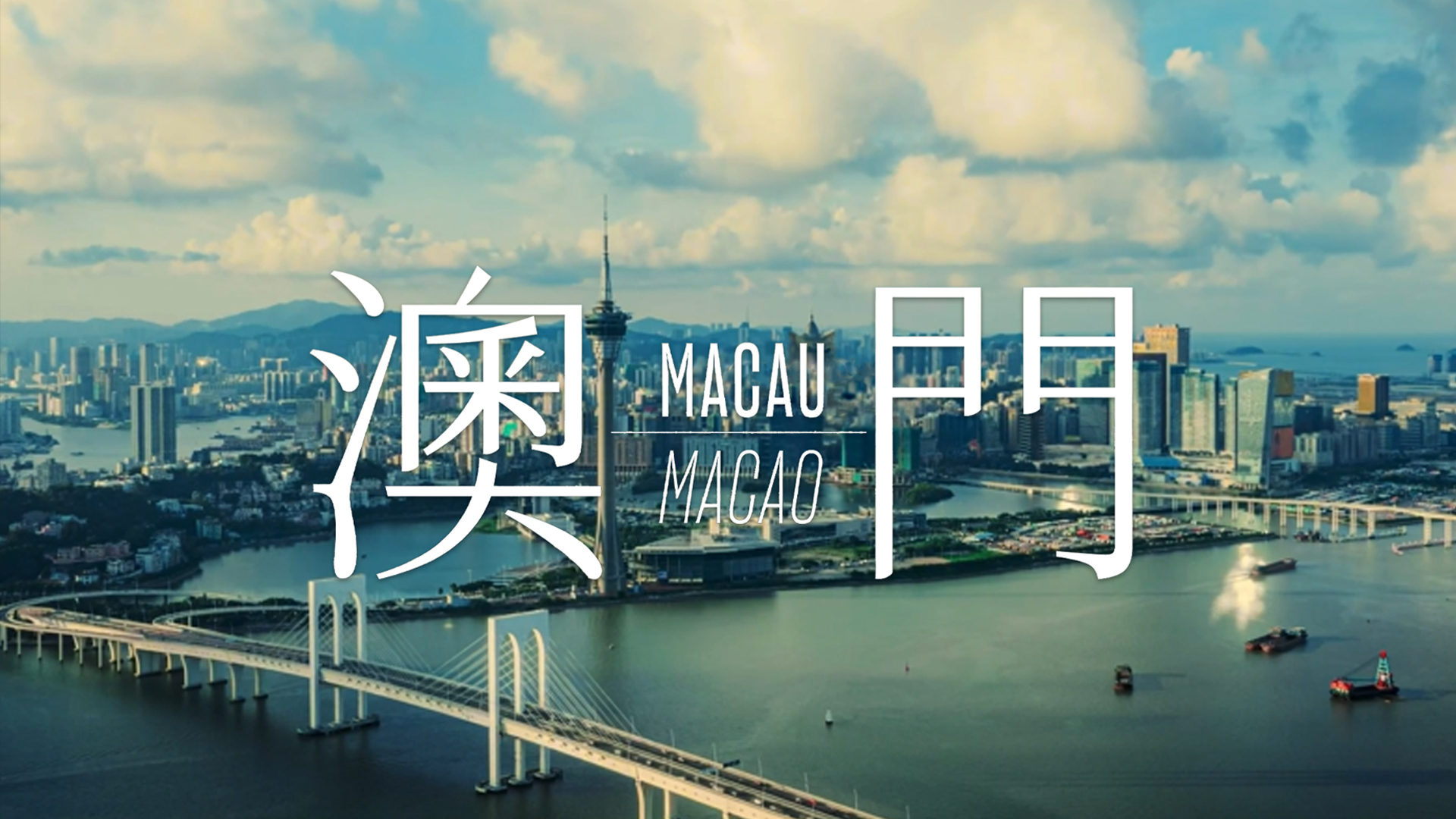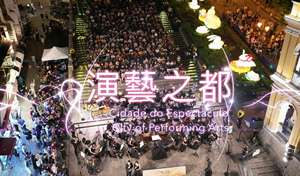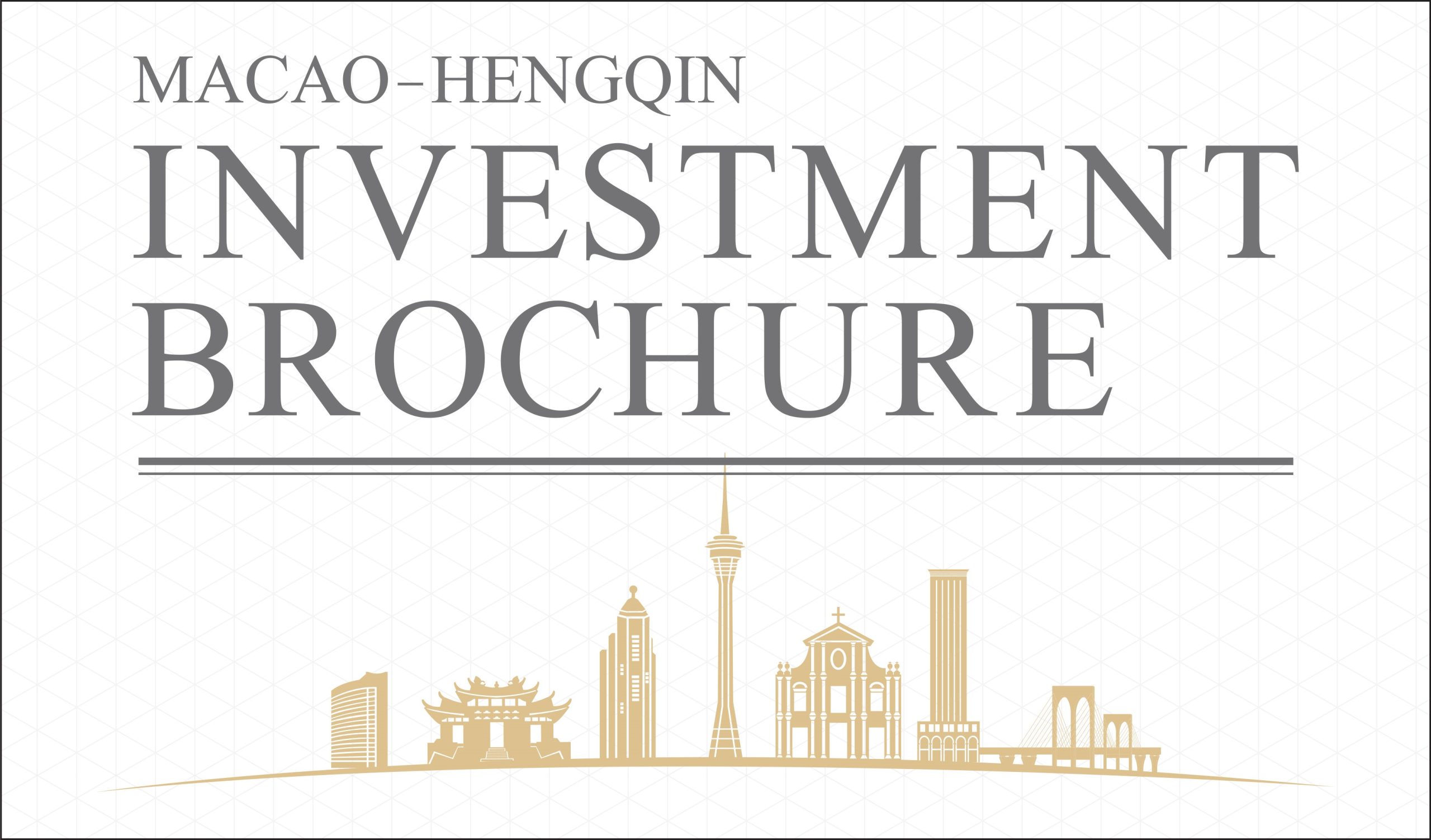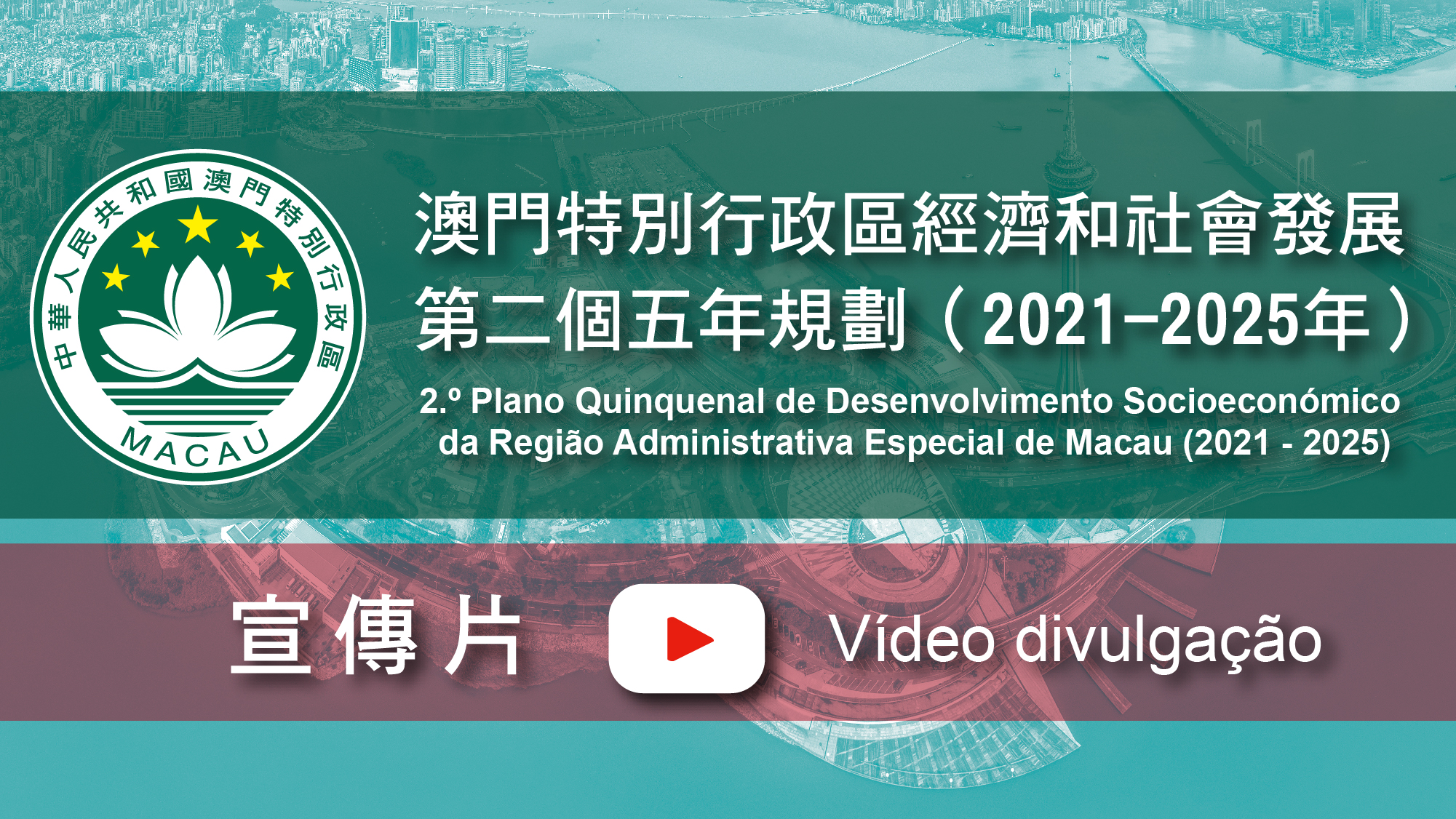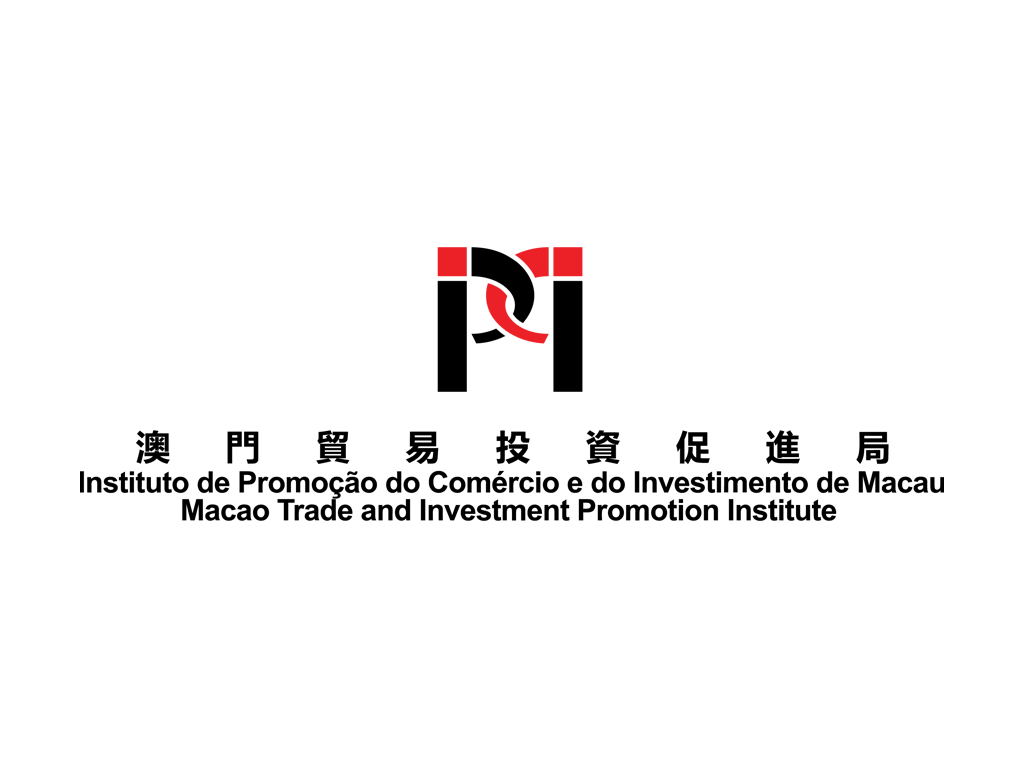Search Issues
Creative Macau, Promoting the Local Creative Industry
Over the years, Macao SAR government has taken a number of measures to encourage the development of emerging industries such as cultural and creative industry. The Government’s review of the Fiscal year 2009 indicated that the government will intensify the promotion and cultivation of the cultural and creative industry. By adding the culture industry based on the concept of creativeness into the Macao Tourism economy chain, it can not only bring along the development of other related industries, thereby enhancing the adequate economic diversification of the region, but can also assist local SMEs in upgrading and restructuring their businesses.
The Development of Creative Macau
Established in 2003, operating as a local multi-functional gallery, Creative Macao had only about 100 members but now has over 500 registered members and its work has been more widely recognised throughout the local creative industry and overseas. Ms. Lucia Lemos, Director of Creative Macau told Macao Image in an exclusive interview at the gallery recently.
The main objective of Creative Macau is to provide a platform where local creative talent can network with one another. Over the last six years, the gallery has launched various programmes besides exhibitions, including workshops, seminars, competitions and art field trips.
She stressed, “My dream is to have a fully developed local creative industry so that we [Macao] shall have not only artists but also art enthusiasts and everyone in Macao appreciating the arts and acknowledge the hard works of the artists.”
She made it clear that Macao’s creative industry has been around for a long time. In fact Macao has been home to many foreign artists, particularly from Europe, for a number of centuries. Even now, there are more and more foreign artists making Macao their base because the city gives them so much inspiration.
Market Situation of the creative industry in Macao
To compare the development of creative industry in Macao and other countries, what Ms. Lemos saw was that Macao’s creative industry was not developing like other countries and regions. It [local creative industry] is developing but it’s still not enough. She believes that there needs to be more done and the industry needs to be supported by everyone, including the local government.
Ms. Lemos, who is a jewellery designer, also said quite frankly, that it is hard to get people to buy artwork unless the artists are well known.
She also said, “Creative people are those who produce something. They can have an arts academic background or those with natural talent. It’s hard to track down how many artistic people there are exactly in Macao but I know that not many are very actively producing work; maybe about 50.”
Asked about the revenue from selling their artwork, she replied that it is hard to tell because it depends upon how famous you are. Most of well-known artists in Macao get at least MOP50, 000 per item and some of them can sell up for up to around MOP80, 000.
Strategies of tapping the creative market
Ms. Lemos is of the view that in order to tap into the creative market, artists need to work hard to develop their work. She said for example, Konstantin Bessmertny who is a local Russian artist is pretty famous and successful because he works really hard. He devotes his life to his career, which is never easy for anyone to begin with but it has now paid off after many years of hard work.
She believes that the main problem in Macao is not the [creative] market but the artists don’t seem to care enough about developing their artwork more and devoting their lives to their careers. There will never be a real [creative] market before there are [well-respected] artists. In addition to hard work, getting a support not only from Macao but also overseas is also important in order to conquer the market.
Full confi dence in the future development
Being asked about the future development plans and expectations for Macao’s creative industry, Ms. Lemos stressed that although she likes creating art more than anything else;
at the moment her priority is to really promote the local creative industry so that it will be better. However, she would love to eventually devote herself to her own work.
During the one-hour interview, Ms. Lemos also encouraged new local artists to push down the prices they charge for their works of art in an effort to attract buyers. She stated that buying works of art is really like an investment, people only invest when they see it is worth it.
Ms. Lemos is upbeat about the future of the creative industry in Macao. “I really think Macao has potential, so we need to push local creative people harder to really try to get their work out there, while together building and shaping the local creative industry”, she pointed out.
To assist SMEs in exploring the new development opportunities of the creative business, IPIM set up the creative industry pavilion in the 14th Macao International Trade and Investment Fair (MIF) in 2009 and also organised a themed seminar with EU partners. Creative Macau is a regular participant of MIF, they have also attended the seminar in the 14th MIF in order to share their experience in the development of the creative industry and its implication for Macao. The gallery is using all possible channels to promote and increase the reputation of local the creative industry.
Excellente International Group Limited Explores the Mainland Market by Leveraging Macao as a Platform
When tourists come to Macao, apart from buying snack souvenirs of wellknown locally made snacks, they like to stop at tea restaurants or cafés from time to time when they are exhausted from touring the city, to relax and enjoy a good warming cup of something. Mr. Lo Seng Chung, who owns a coffee plant in Macao, thinks that many mainland tourists fi nd it diffi cult to get quality coffee in the city.
Mr. Lo Seng Chung, Managing Director of Excellente International Group Limited noticed the younger generation of Mainlander’s demand for coffee three years ago, so he launched a local brand—Lotus Coffee. With the brand, he hopes to make inroads into the Mainland market and provide more diverse choices for Mainland visitors.
CEPA Gives a Boost to Coffee Business
Excellente International Group Limited has been engaged in economic and trade ties with Portuguese-speaking countries for a long time, including the purchase and processing of cashew nuts. Although some Brazilian businesspeople suggested that he should purchase coffee beans, Mr. Lo was not interested in developing coffee market then. He did not make any impact on the Mainland coffee market until 2006 when CEPA was launched and zero tariffs made it all possible.
Mr. Lo said, “thanks to CEPA, coffee manufactured in Macao can enter the Mainland market duty-free. CEPA also requires us to pass the Mainland’s quarantine laws and a nutrition analysis. This can only boost consumers’ confidence in our product.”
Mr. Lo’s business idea in this regard was born in 2006. He was very impressed with the coffee culture of university students in Beijing and Shanghai after he spent six months visiting and doing research in mainland cities. Mr. Lo said, “Traditional drinks on the Mainland are tea and soft drinks, but the younger generation, in particular university students are more receptive to things from overseas. Moreover, many young people who returned to China after graduating from overseas universities already have the coffee drinking habit. So we target young people aged 25 to 40.”
Competitive Edge Totally local characteristics
The key to entering the Mainland coffee market is planning how to increase coffee consumption of the residents, who are mostly used to inexpensive three in one (instant) coffee at RMB2-3 per cup. Mr. Lo said, “A cup of premium freshly ground coffee costs about RMB30-80 on the Mainland, which is very expensive for consumers there.”
In fact, apart from Mr. Lo, businesses from other regions are also interested in the Mainland coffee market. Mr. Lo pointed out that a chain of coffee shops from Taiwan in Shanghai charged RB10-20 per cup of freshly ground coffee and planned to open 100 outlets in three years. Mr. Lo said frankly, “The industry is upbeat about the profi tability of China’s coffee market in 5 years. As the pioneer there, Taiwan operations are our major competitors.”
Though benefi tting from the duty free tariffs of CEPA, imports of Macao coffee are subject to 13% VAT. Mr. Lo indicated that Macao enjoyed close geographical proximity to Zhuhai and as a result, goods from Macao could reach mainland China in 3 to 4 days thanks to convenient transportation networks.
Despite competition from other regions, Mr. Lo is very confi dent about the “Made in Macao” brand. Mr. Lo stressed, “Improvement in Macao’s international image has elevated local goods to the level of those made Taiwan and Hong Kong according to Mainland consumers.” Following the Handover, more and more mainland tourists travel to Macao and learn to appreciate its lifestyle and cultural difference to mainland China, so they are much more confi dent about made in Macao goods. Although coffee imported from Macao is 10 to 13 percent more expensive than coffee in mainland supermarkets, it does not affect sales of Macao goods too much.
Marketing Macao Coffee as a Must-buy Souvenir
The formulas and coffee machines used in Macao blend coffee with a similar fl avour to the coffee in Southern Europe, tasting “aromatic, strong and pure”. Mr. Lo hopes to develop “Made in Macao” coffee into a distinct local product and a possibly must-buy souvenir in the future. Mr. Lo said, “If tourists buy our coffee products as souvenirs in addition to almond cakes, egg rolls and fried beef in the future, the status of local coffee will be very much elevated. Because Macao is a tourist destination, if we can do the packaging well, I think that may one day it will become reality. ”
In addition to marketing local coffee as a local souvenir, Mr. Lo planned to open branded coffee outlets in Macao in 2010 and sell their products in local supermarkets. Then local residents will be able to enjoy “Made in Macao” aromatic coffee.
Thanks to MIF,Nice Digital Ltd Creates “Four New Concepts” of Photographic Retail
Following Macao’s handover, its retail market has grown more diverse and registered growing retail sales every year, but competition has also grown, posing great challenges for retail businesses.Nice Digital Ltd has been operating in Macao for 28 years; its fi rst shop is in San Kio District and a shop in Nan Van, the touristy area. This year saw their third shop open in the densely populated Fai Chi Kei District. Mr. Lou Cheok Weng, Managing Director of Nice mentioned that the company’s long-time success in Macao’s retail market was attributable not only to its honesty and integrity, but also to the government’s policy to diversify tourism products, bringing in more tourists and so injecting new vitality into the retail market.
Honesty and Integrity Comes the First in Competition
Mr. Lou was originally from Myanmar. When he was little, he loved photography and developing fi lms and a childhood hobby turned into a life-long career. He moved to Macao in the 1970s, when he chose photograph developing and printing as his trade. Thanks to his professionalism, integrity and perseverance and after ten years’ effort, he owned Nice Digital Ltd. Over the last 28 years since its inception,Nice has borne witness to the development of Macao’s photographic retail market. Mr. Lou said Hong Kong and Macao tourism mainly depended upon mainland tourists, who would normally go to Hong Kong fi rst for shopping, in particular for digital cameras, so camera retailers in Macao met with strong pressure from neighbouring markets. According to him, honesty and integrity and word of mouth advertising hold the key to development. He said, “I never sell smuggled cameras despite its profi tability. Marketing cameras is a career I have chosen to do, so I should be responsible for myself and for the customers by providing them with reliable quality and reasonable price.”
Macao’s tourism industry has enjoyed signifi cant growth since its handover. The SAR government has implemented a policy of appropriate economic diversifi cation and worked to diversify the source of tourists and tourism products, injecting new vitality into Macao’s retail sector. Mr. Lou said that Nice’s three shops targeted old and new customers as well as tourists. He thinks that it is thanks to the government policies, that there has been a signifi cant increase in the number of tourists becoming customers from Africa, South Asia and Portuguese-speaking countries.
He said that 10th Anniversary of Macao’s handover had attracted extensive attention, so in conjunction with long-time partner LEICA, they launched a limited edition of 300 LEICA digital camera celebrating Macao’s handover, printed with the symbol of “Macao’s World Heritage Architecture”, which became very popular among consumers including overseas friends.
Exploring Business Opportunities by Leveraging the Platform
With support from IPIM, Macao Convention and Exhibition Association and Association of Hong Kong Photographic Equipment Importers, Macao Photography and Printing Trades Association began to set up digital imaging and photographic equipment booths in MIF since 2003. Mr. Lou is the President of Macau Photography and Printing Traders Association. He said that in 2003 there were 40 exhibition booths in MIF for their sector with participants from Hong Kong, Taiwan and Thailand, which was warmly welcomed by the market. Since then there has been more exhibitors and with more and newer brands on display, this year they attracted over 20 exhibitors from Europe, Japan and the US. Over 68 booths exhibited dozens of well-known international brands, which made their exhibition another big eventfollowing the Koln Expo, featuring “new products, new discoveries, new exhibitors and new clients”. He said, “MIF is an ideal platform for digital photographic equipment to explore the market.”
Mr. Lou pointed out that their years’ experience at MIF showed that the Fair had become an ideal platform for buyers and customers to look for goods they like and for agents to seek out business opportunities. Most importantly for the exhibitors, Macao has leveraged its advantages and been committed to developing economic and trade co-operation with Portuguese-speaking countries, wtih this connection, MIF also invited exhibitors and entrepreneurs from the many Portuguesespeaking countries. Digital photographic equipment businesses can fi nd co-operation partners at the exhibition to expand business opportunities.



